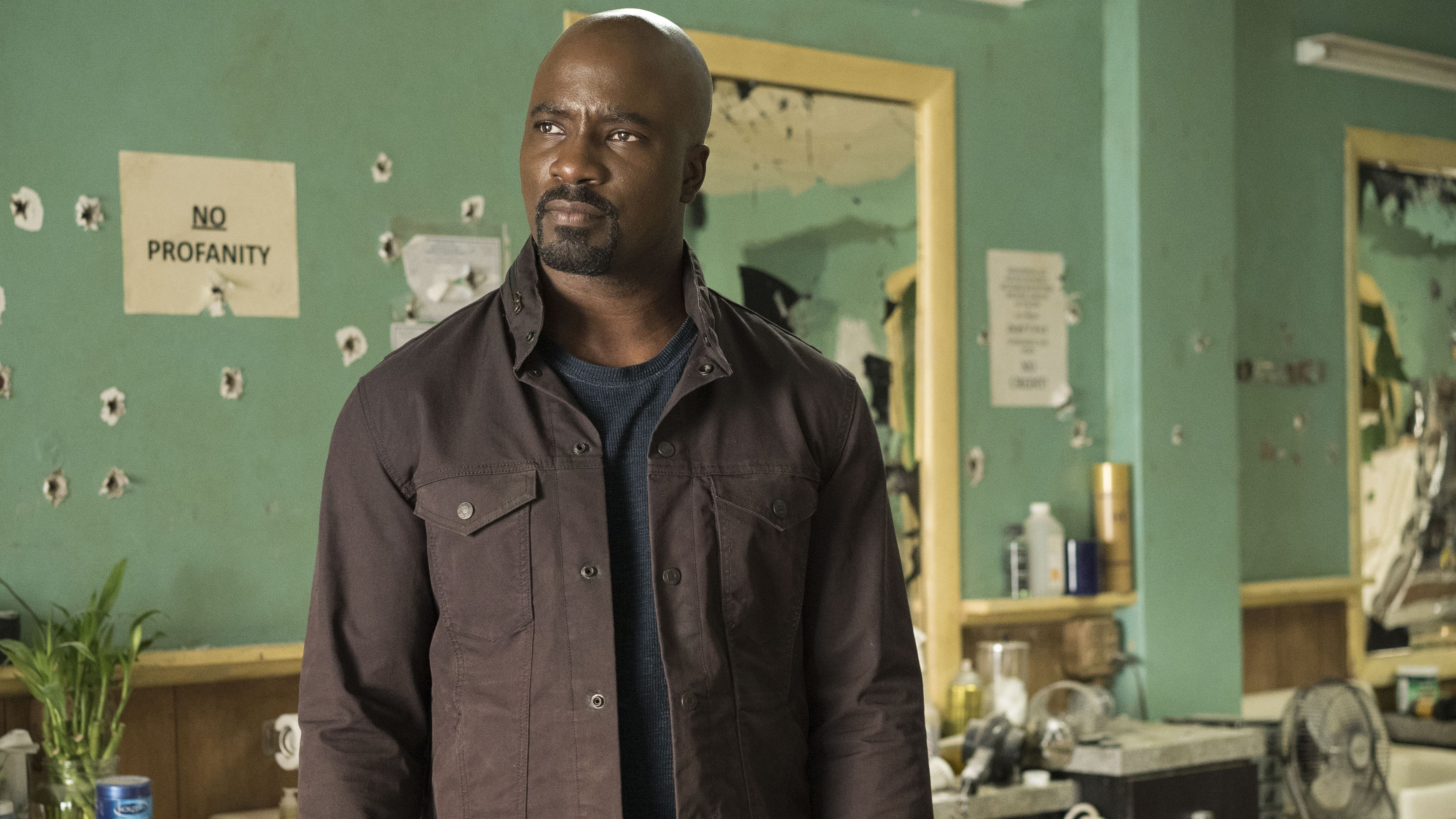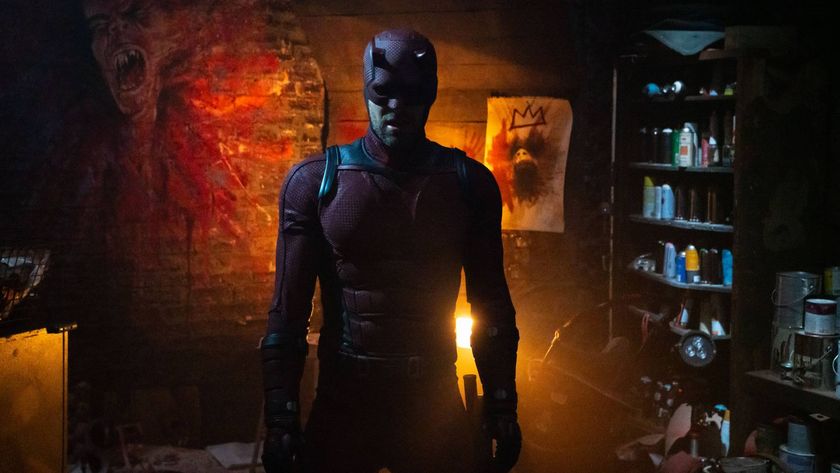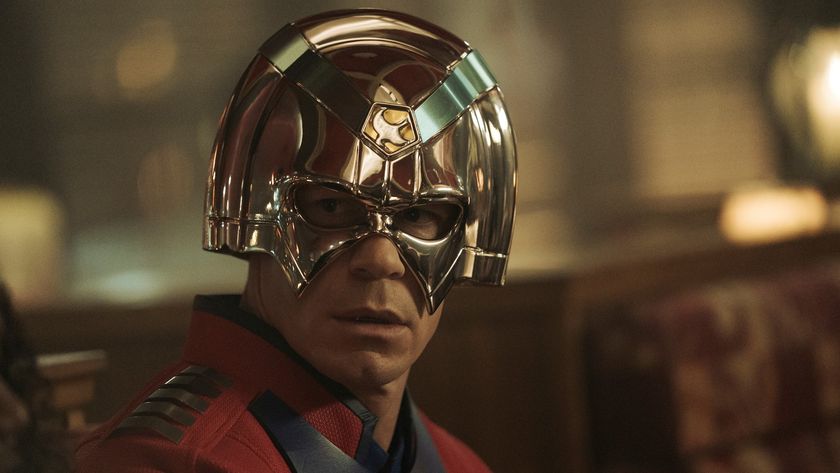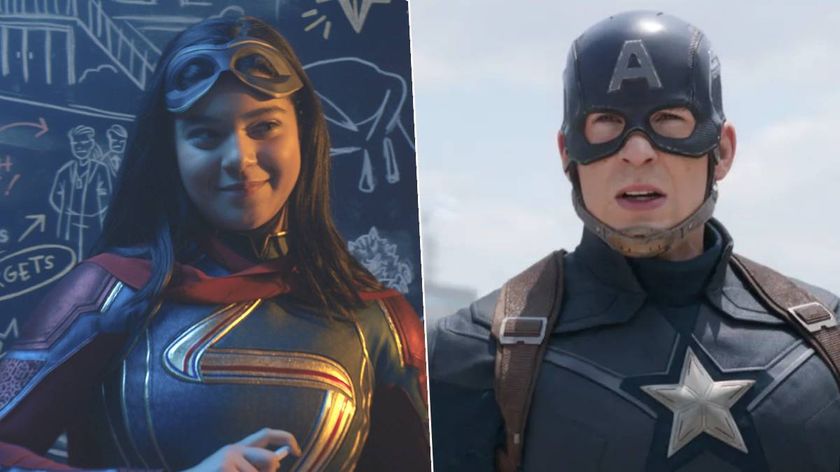12DOVE Verdict
Luke Cage’s solo debut is powerful, unique, and beautiful to listen to, but it’s undermined by lacklustre plotting in the second half of the season.
Why you can trust 12DOVE
“The world is ready for a bulletproof black man.” Those were the words spoken by Luke Cage showrunner Cheo Hodari Coker at San Diego Comic Con earlier this year, and in the subsequent months that quote has only become more relevant. Indeed, the political commentary adds another layer of significance to the show – Marvel’s second major live-action property to be headlined by a black superhero (Blade got there first back in the late 90's) – and although the plotting in the latter half of the season leaves much to be desired, Luke Cage’s strengths ultimately outweigh its weaknesses.
Picking up months after the events of Jessica Jones – in which Cage made his MCU debut – we find our titular hero sweeping hair at Pop’s Barbershop in Harlem, doing his utmost to stay under the radar. It isn’t long though before he’s drawn into conflict with crime boss Cornell ‘Cottonmouth’ Stokes (Mahershala Ali) and his cousin Mariah Dillard (Alfre Woodard), each of whom have their own designs for the city.
From the first episode onwards, Luke Cage distinguishes itself from its Marvel counterparts with its intimate depiction of Harlem that gives us an authentic slice of black culture. From the music – which includes guest appearances from artists such as Raphael Saadiq, Faith Evans, Jidenna, and more as well as a pitch-perfect score from Adrian Younge and Ali Shaheed Muhammad – to a cameo by legendary Harlemite Dapper Dan, to small character details revealed in barbershop banter, Harlem feels like much more of a lived-in community than Hell’s Kitchen.

While this level of world-building feels like new ground for a Marvel superhero show (or movie), Luke Cage does have its fair share of tropes. For instance, Luke himself makes for a very reluctant superhero – he still flip-flops on whether or not to accept his calling even in the second half of the season, which is frustrating – and there are more familiar archetypes to be found in the show’s cops and villains.
Thankfully, this is mostly cancelled out by the strong characterisation and even better acting. Indeed, Luke Cage boasts perhaps the best supporting cast in any Marvel Netflix series to date; as Cottonmouth, Ali chews up scenery almost every time he’s on screen, and a flashback episode adds a lot of complexity to his villain. There’s also great turns from Frankie Faison – who makes clunky dialogue sound halfway authentic – and Theo Rossi as the opportunistic villain Shades.
Best of all, Luke Cage features three prominent women of colour characters, all of whom are smart and confident in their own ways. Woodard has the tricky task of charting Dillard’s evolution from corrupt politician to fully-fledged criminal and she navigates it superbly, and it’s especially welcome to have Rosario Dawson’s level-headed Claire Temple return when our hero is so non-committal (while this is by far Dawson’s best utilisation to date, I would’ve preferred she not become a love interest again).
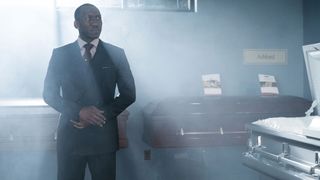
Then there’s Simone Missick as the fiery detective Misty Knight, and it’s difficult to overstate just how good she is in the role. It’s little wonder why there’s already a demand for Misty’s own solo show, and on this basis Marvel would be wise to acquiesce to fans’ request. It’s all anchored by Colter, who shares good chemistry with each of his co-stars. He exudes quiet confidence as Cage, and that’s especially thrilling to watch when he uses his powers. A black man strolling down a hallway, hoodie up, while not flinching in the face of bullets is powerful imagery, and it’s never not fun watching Cage nonchalantly swat criminals aside – Colter calls it ‘smack-fu’ – even more so when it’s soundtracked by Wu-Tang Clan’s ‘Bring da Ruckus’. Importantly, Colter’s Cage is no less compelling when he’s not knocking out thugs, and the character gets more and more layered as the season continues.
It’s unfortunate then that the cast are let down by narrative issues in the final few episodes, some of which might have been avoided if the plot hadn’t been stretched across 13 hours, a criticism which arguably holds true for all of Marvel’s Netflix shows. The central villain goes from being a compelling antagonist to someone who’s overly cartoonish, a hastily manufactured sub-plot needlessly takes us away from Harlem, and the dialogue gets much more on-the-nose resulting in some very corny scenes.
With that said, there are times when that heavy-handedness works, and in those moments Luke Cage becomes something special and unique. The most potent example of this comes in episode 12, where Method Man raps about Cage being Harlem’s hero over a montage of black men in bullet-pierced hoodies. It’s the perfect fusion of hip-hop, heroics, and social commentary that the show admirably strives for, but doesn’t always achieve. Being overly ambitious and coming up short is much preferable to playing it safe though, and even if Luke Cage isn’t the best of Marvel’s Netflix output it’s certainly their boldest yet.
Amon is a contributing editor and columnist for Empire magazine, but is also a Film and TV writer for 12DOVE, Total Film, and others. He has also written for NME, Composer Mag, and more, along with being a film critic for TalkSport. He is also the co-host of the Fade to Black Podcast, and a video mashup creator. Can also do a pretty good Bane impersonation.
Most Popular





